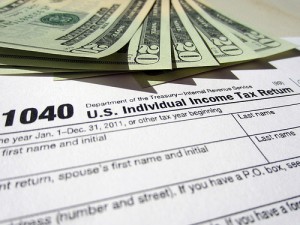Deducting Travel Expenses-
Do you use transportation for work or as a Volunteer? The IRS allows you to deduct many different types of transportation expenses, as long as you incur them while conducting business. While you can’t deduct your daily commute to and from work you can deduct many other travel expenses. These expenses include airfare, car rentals, ferry rides, parking garage fees, and much more. Plus, if you use your car for your job, you may be able to deduct visits to the pump, all sorts of car services and repairs, and other car-related expenses. While tax time seems far away, there are things you should be doing NOW to make sure more money stays in your pocket – not Uncle Sam’s – come April. Follow these three tips starting today.
Learn What Qualifies As A Business Travel Expense

Some travel expenses are obvious. The cost of the flight you took to the new business pitch. The taxi fare to get you to the audition. Others aren’t as apparent. If you use your car exclusively for work, then your gas fill-ups, oil changes, brake replacements, insurance premiums, and registration fees are deductible. However, if you also use your car for personal reasons, keep track of the business mileage you accrue. If it represents 25% of your car’s annual mileage, apply the same percentage to your car-related expenses to arrive at an accurate amount to deduct. Would you rather not do all that figuring? Then the IRS supplies a standard mileage rate that you can multiply against your business mileage to calculate your deduction. Occasionally the IRS will issue a new standard mileage rate after studying the costs of operating a car. For updates, check with your professional tax advisor or visit the IRS online.
Keep Your Travel Expense Receipts
Designate a drawer or folder as the place to store travel expense receipts. Get into the habit of emptying your wallet and pockets of these sales slips as soon as you return home. For those charges that you pay for via credit card online, print out the email confirmation and file it in your receipt holder. At year’s end, many credit card companies will provide a statement that categorizes travel expenses for you. Remember that receipts are a necessary component of a travel log.
Maintain A Travel Log
Whether you call it a diary, journal, log, or notebook, recording your business travel is essential. Make sure each entry includes a date, what the expense was for, the purpose of your trip, and the amount you spent. Then attach the related receipt. The expense can be as small as a subway ride downtown to meet clients for lunch, or as large as an international flight to another continent to attend an industry conference. Maintaining a log allows you to easily total your travel expenses for your professional tax advisor. And if you’re ever audited, you can substantiate your deductions with this detailed documentation. The key components necessary in substantiating the elegibility of any deductions are just like the keys of a good story: Who, What, When, Where, Why and How.
- Who did you meet with?
- What did you do or discuss?
- When exactly did this meeting happen?
- Where did the meeting happen?
- Why did you meet? (must be a business related purpose)
- How much did you spend on this business related purpose?
If you document those six factors and provide a receipt you won’t have any problems deducting business travel expenses. You can get a paper version like The Ultimate Mileage Log or you can even get an App for your iPhone or other electronic device.
Regularly recording your business travel expenses does take discipline. But when you see the deductions you can take on your tax return, it will be worth it. It may reduce your tax bill, or even better, result in a tax refund. For further helpful information, see the IRS’s Publication 463.
You also might find the following books helpful:
- Deduct It!: Lower Your Small Business Taxes
- Tax-Free Wealth: How to Build Massive Wealth by Permanently Lowering Your Taxes (Rich Dad Advisors)
- Lower Your Taxes – Big Time
- Working for Yourself: Law & Taxes for Independent Contractors, Freelancers & Consultants
- Tax Savvy for Small Business
See Also:
- College Savings Accounts
- High Performance Savings Accounts
- The Wealthy Buy Assets, the Poor Buy Liabilities, and the Middle Class Buy Liabilities Believing They Are Assets
Photo Credits: by 401(K) 2012 Business Travel Expenses Deductions
